The Mirror command allows you to create a duplicate of a mesh that is reflected across an invisible mirror plane. You can then position this plane manually to customize and tweak the resulting geometry. Use the following options to set what happens when you select Mesh > Mirror.
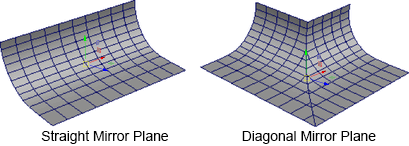
Mirror Settings
- Cut Geometry
-
Determines whether or not faces that break the cut plane are removed from the mesh.
- Geometry Type
-
Specifies the type of mesh Maya generates when the Mirror command is used. Default is Copy.
- Copy
- Creates a new object that is not linked to the original geometry when Combine with Original is off. If Combine with Original is on, this option creates a new shell of mirrored components that becomes part of the original object.
- Instance
- Creates an instance of the geometry being mirrored. When you create an instance, you do not create actual copies of the selected geometry. Instead, Maya redisplays the geometry being instanced.
- Flip
- Repositions the selected geometry across the Mirror Axis. Equivalent to multiplying the object's respective scale attribute by -1.
- Mirror Axis Position
-
Specifies the plane of symmetry on which to mirror the selected polygon object. Default is World.
- Bounding box
- Mirror relative to one side of an invisible cube encompassing the selected object.
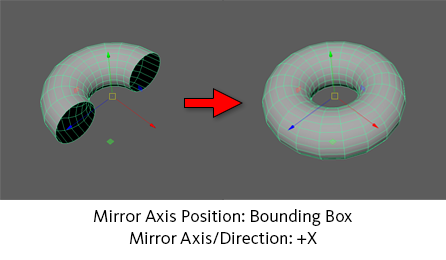
- Object
- Mirror relative to the selected object's center.
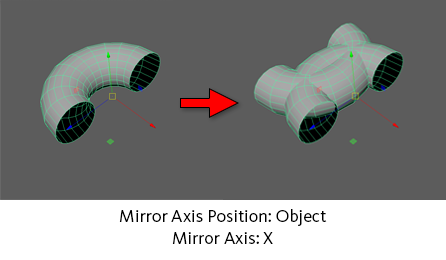
- World
- Mirror relative to the world space origin.
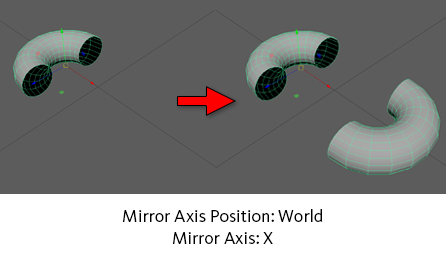
- Custom
- Mirror relative to a set position along the Mirror Axis.
- Mirror Axis
-
Specifies the axis on which to mirror the selected polygon object, centered at the Mirror Axis Position. Default value is X.
- Mirror Direction
-
Specifies which direction to mirror the selected polygon object in the Mirror Axis. Default is positive.
Merge Settings
- Combine with Original
-
Combines the original object and the mirrored object into a single mesh. Subsequent changes that you make to the original object are not updated on the mirrored object as a result. Default is on.
- Border
-
Specifies how to handle joining mirrored components to the original polygon mesh. Default is Merge border vertices.
- Merge border vertices
- Merges vertices along border edges according to the Merge Threshold.
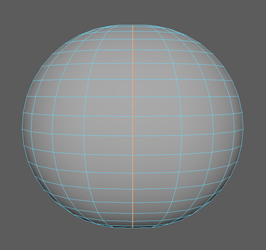
- Bridge border edges
- Creates new faces that bridge the border edges between the original and mirrored geometry.
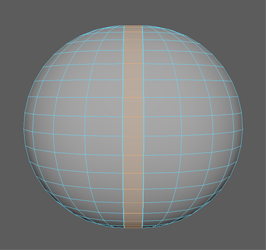
- Do not merge borders
- Leaves the original and mirrored geometry components as separate.
- Merge Threshold
-
Specifies the method in which vertices are merged when Border is set to Merge border vertices. Default is Automatic.
- Automatic
- Merges logical pairs of vertices (i.e. each vertex with its mirror) at a center point between the two vertices. Vertices only merge if they're within a certain distance threshold of each other, determined by a fraction of the average border edge length (to remain scale independent).
- Custom
- Merges vertices within a set threshold measured in scene units.
- Smoothing Angle
-
Edges on the line of symmetry between the original and copy whose bordering faces form an angle less than or equal to the Smoothing Angle are softened. Otherwise they are left hard. Default is 30.
UV Settings
- Flip UVs
-
Flips the UV copy or selected object's UV shell, depending on the current Geometry Type, in the specified Direction. Default is off.
- Direction
-
Specifies the direction in UV space to flip the UV shell when Flip UVs is turned on. Default is Local U.